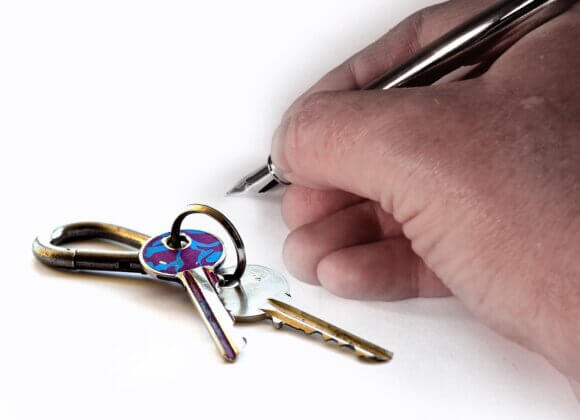The rental agreement is signed and the apartment is rented out. Nevertheless, the owner, i.e. landlord, is not released from various obligations.
A vacant apartment can certainly become a burden for owners. Not only financially, but also organizationally, as it needs to be regularly aired out and looked after. In some federal states, owners of vacant apartments now even have to report the vacancy and pay vacancy taxes. All the greater the joy when a tenant is found. “Nevertheless, landlords must not forget that not only tenants but also they enter into obligations when they sign a rental agreement,” says real estate law expert Valentina Philadelphy-Steiner.
Appropriate condition
This includes, for example, ensuring that the rented property is handed over to the tenant in the agreed condition, i.e. in an appropriate and habitable state. And he must ensure that this remains the case, at least within the full scope of application of the Tenancy Act.
In old buildings and subsidized housing, the landlord is obliged to maintain the general parts of the building – including the roof, façade, walls, exterior windows and doors, staircase, various pipes in the wall, but also communal facilities such as the central heating, elevator, laundry room or communal garden. This means that they must maintain them and repair any damage. The same applies, for example, to the gas boiler or the dishwasher if the kitchen was also rented out.
If the rental property is only partially or not at all subject to the MRG, the landlord is generally obliged to carry out maintenance work in accordance with the ABGB. “But he can make a different agreement with the tenant. However, he cannot pass on the maintenance obligations to the tenant completely,” says Philadelphy-Steiner. However, if the apartment has become unusable due to an extraordinary event, such as fire or storm, the landlord is not obliged to restore it.

Speed required
Incidentally, landlords should not take forever to repair damage. “They should have it done within a reasonable period of time,” says the real estate lawyer. Otherwise, the tenant could justifiably demand a rent reduction.
Other obligations of landlords
Apart from this, the landlord is obliged to comply with administrative regulations, for example regarding a sewer connection. Energy-saving measures also fall within his area of responsibility. Furthermore, the landlord is obliged to prevent significant health risks to the tenant and to ensure that they can exercise their tenancy rights undisturbed. “If another tenant causes undue noise, for example, the landlord must ensure that the tenant refrains from this behavior – in the worst case, the landlord must give notice to the troublemaker,” says Philadelphy-Steiner.
In the area of full application of the MRG, there is another obligation for landlords: they must submit the previous year’s statement of operating costs to the tenant by June 30 of the following year, otherwise they may even face administrative penalties.
Deposit – with interest only
If the payment of a deposit was agreed in the tenancy agreement, this must be invested by the landlord at the benchmark interest rate – either in a savings book or in another form of investment. However, this must offer the same interest rate and security as a savings book. Both must also be ring-fenced from the landlord’s private assets.

In addition, the landlord is obliged to return the deposit immediately after the end of the tenancy, provided he has no justified claims against the tenant. Only if this is the case can the landlord retain the deposit in the amount of the claim. If the deposit is higher than this, the excess amount, including interest, must be transferred to the departing tenant.
Our expert

Related posts:
What are the tenant’s obligations?












